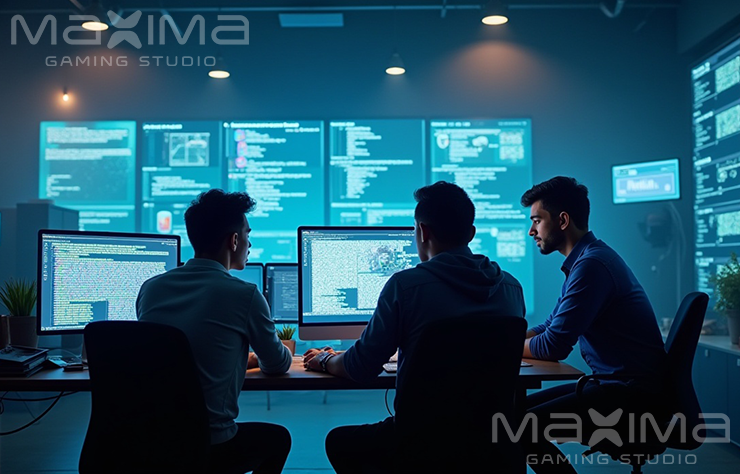 June 2, 2025
June 2, 2025
Machine Learning in Gaming: Personalization, NPCs & Balance
Machine Learning (ML), a subset of Artificial Intelligence, is rapidly becoming a cornerstone in modern gaming. It empowers games to learn from player behavior, adapt dynamically, and deliver truly personalized experiences. From intelligent NPCs to perfectly balanced gameplay, ML is transforming how games engage and challenge players.
Let’s explore the major ways machine learning is shaping personalization, NPC behavior, and game balancing in 2025.
Personalization: Crafting Unique Player Experiences
Machine learning models analyze massive amounts of player data — including skill level, playstyle, preferences, and in-game choices — to tailor experiences uniquely for each player.
- Dynamic Difficulty Adjustment: ML tweaks game difficulty in real-time to keep players challenged but not frustrated.
- Content Recommendations: Suggests quests, items, or multiplayer matches that suit the player’s style.
- Custom Story Paths: Branching narratives shift based on player decisions, guided by ML predictions.
This level of personalization increases player engagement, satisfaction, and retention.
Smarter NPCs Powered by Machine Learning
Traditional NPCs follow pre-scripted behaviors. ML-enabled NPCs learn and adapt to player tactics, providing more realistic and challenging interactions.
- Reinforcement Learning: NPCs improve strategies through trial and error during gameplay, offering dynamic opposition.
- Natural Language Processing (NLP): Enables NPCs to understand and respond to player inputs or commands more naturally.
- Social and Emotional Intelligence: Advanced models simulate emotions and social cues, enriching NPC believability.
These smarter NPCs enhance immersion and make multiplayer or single-player modes more engaging.
Game Balancing Using Machine Learning
Balancing game mechanics is critical but complex. ML automates this by analyzing gameplay data to identify:
- Overpowered or underused weapons, skills, or strategies
- Levels or stages that are too hard or too easy
- In-game economies that need adjustment
Developers use ML insights to tweak game parameters and create a fair, enjoyable experience for all players.
Challenges and Best Practices
Traditional NPCs follow pre-scripted behaviors. ML-enabled NPCs learn and adapt to player tactics, providing more realistic and challenging interactions.
- Data Quality: ML effectiveness depends on clean, relevant data.
- Avoiding Bias: Models must be carefully trained to prevent unfair advantages or discrimination.
- Transparency: Players appreciate understanding how AI affects their experience.
Conclusion
Machine learning is a powerful force behind today’s most adaptive, engaging games. By personalizing gameplay, creating smarter NPCs, and ensuring balanced mechanics, ML enhances player satisfaction and drives industry innovation. For developers and players alike, embracing ML means stepping into a new era of intelligent, responsive gaming.


